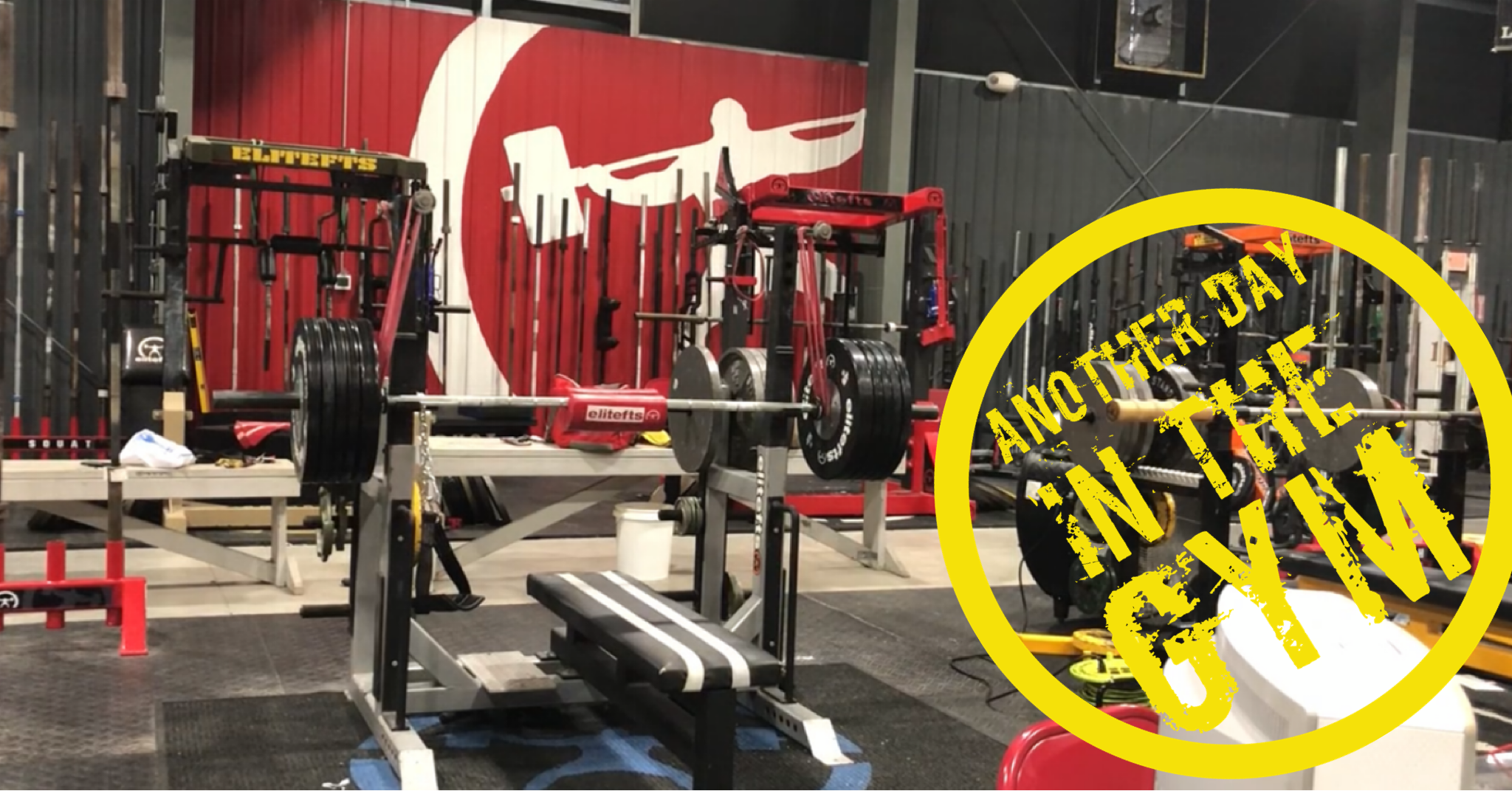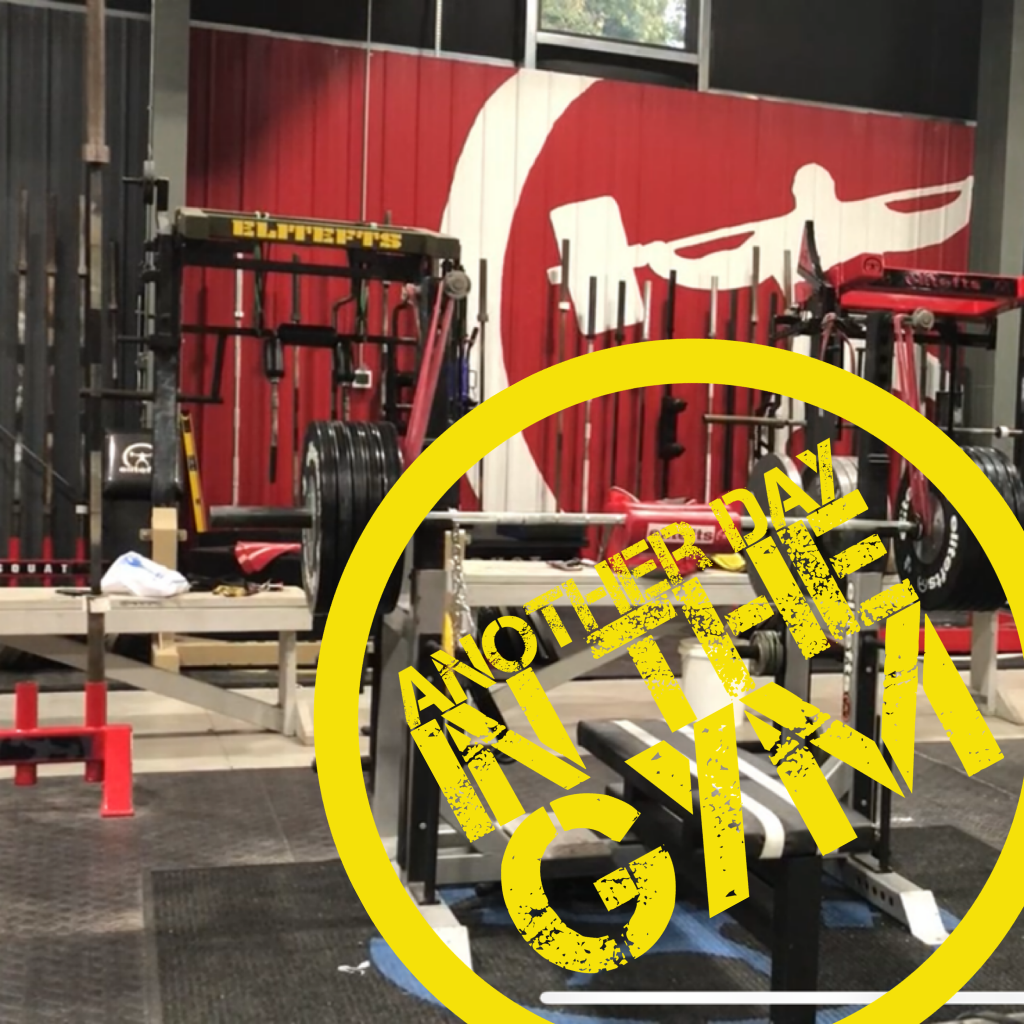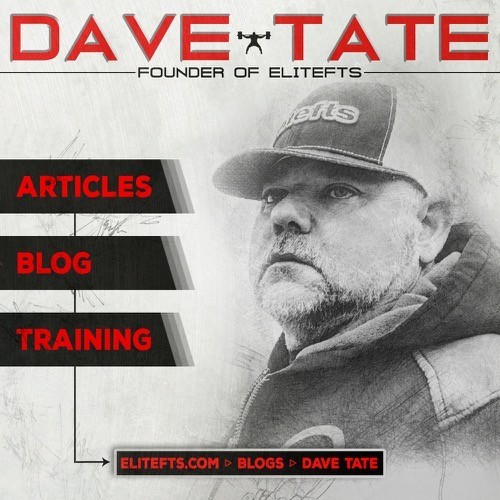
Tomorrow I will be discussing the future of Powerlifting with Joe Sullivan. Circle back then.
SNOW DAY
Recap: For getting pounded by snow yesterday and last night, I didn’t see anyone who looked like they didn’t want to be there. The way they interacted with each other the first 10 minutes I was there was normal. There are some that get along much better than others and some that don't like each other. The balance is good right now because it's not perfect. This will breed competition and frustration and over time will lead to giving a shit about how others do. The overreaching goal is for them to care more about how the others progress rather than themselves. This can't be accomplished without some friction. If things become too synergistic, I will find a way to break it.
SPEAKING MEATHEAD
One lifter is actually ahead of schedule with the lift being trained today, and I confirmed this with a more veteran lifter I trust. We agreed and then the process began for how to make said lifter notice this and offer a solution without knowing it was already discussed- making it their idea. My issue here is this lifter knows when I am head fucking them, so I have to do it with them, knowing I know they know I am doing it. Yes, I just wrote that. It's called learning how to speak "meathead."
MORE HARM THAN GOOD
After watching a few squat sets of another one, it’s the best I’ve seen from them. I stayed back further and offered no cues or suggestions. They weren’t needed, and the others had it covered. Sometimes cueing gets in the way. The goal of the cue is for the lifter to be able to move from the audible sound of your voice to their voice in their head, and then it becomes automatic. This lifter is using one of the more difficult techniques of squatting and is very close to having this on point. The wrong cues at this point can do more harm than good.
Max Effort Work
In another area of the gym, max effort work was being done, and the movement was simple and very hard to screw up: close grip incline presses. This was more about watching the weight moved and seeing if it was over or under what I perceive their bench to be right now. Two were good, but one hit a number on incline bench that was too high based on their flat bench. Since the incline takes the lats out while keeping leg drive, this tells me they suck at using their lats to support their bench or the set up on flat bench (especially back and shoulders) needs more work.
LEARNING IS TEACHING
In another rack, more max effort work. Also, stayed way back on this one as there’s a newly ranked pro lifter helping a newer (one meet) lifter. A huge part of learning is teaching and having confidence in what they do and say. From afar, this was all on point, so no need to be close. To test this even more, I had them do a max effort movement neither had ever done before.
OUCH!
Two are injured, but the spirits are great with one and way better on the other. No reason to explain the injury process (already done), and any coddling delays the comeback. They are working hard to get back to doing what they can and not bitching about what they can’t. The tricky part here is that for one of them, training and competing is their first priority or damn close to it. When an athlete is willing to die for their objective, they will do whatever they need to get back, but they also have a lot of rage, anger, and frustration that will come out in the gym. This is GOOD as it's how they cope with it. Better than doing nothing. The trick as an observer is to know they will do shit that is much closer to the edge than they would otherwise do. If you keep them too far away from the edge they will not respect your opinion when it's needed; and if you let them fall over the edge they will injure something else.
RESPECT
There is no doubt that based on my experience, I could tell them what to do to recover faster, not get re-injured, and come back better. I know this, but I also spent more than a decade in their mindset. I would never suggest anyone to look at an athlete and try to coach them off one week or one month. You have to see how it all fits within their long term "competitive" objective. This is the same with when they are hurt. Just how bad is the injury? What was the outcome of the surgery? How does this fit into the overall picture of all the carnage they will suffer. I am sure people will disagree with me, but I am 100% cool with them doing insane stupid shit while they are hurt if the chance of injury is no greater than normal training. Put this scenario 4-6 weeks out from a meet, and it changes everything. I want to have their respect, so if I have to suggest something they will not like, then they will listen. Pick your battles and know who you are speaking to. You say the wrong thing, and they will do worse just to spite you (This is another skill you can use at other times). Remember, respect is earned with trust, caring, and understanding. You can be the best at what you do, the very best, and you may have respect from the beginners and intermediates but when they get good enough that the novelty wears off, it comes down to them trusting that you understand them.
STOP THAT SHIT
Had to say “don’t do that” to another lifter. This is rare because I want them to make mistakes to learn from. I want them to learn to regulate all aspects of the process. I see things every session I don’t like due to bias or logic, but let it go for the reasons above. If I know for sure it’s a mistake, I will say so, and they will stop. It’s so rare that when it’s said, they listen 95% of the time.
MOST IMPORTANT
What I need to see isn’t on paper, but how they look from afar while under the bar and mostly when they are not. I’ve learned this matters more to their success than the set program.
I couldn’t think of anything else. Hope you liked this. Oh, I also trained, but this is secondary when the others are training for meets. My training is getting better and better each week so it shouldn't take long to get back to stuff like this.










